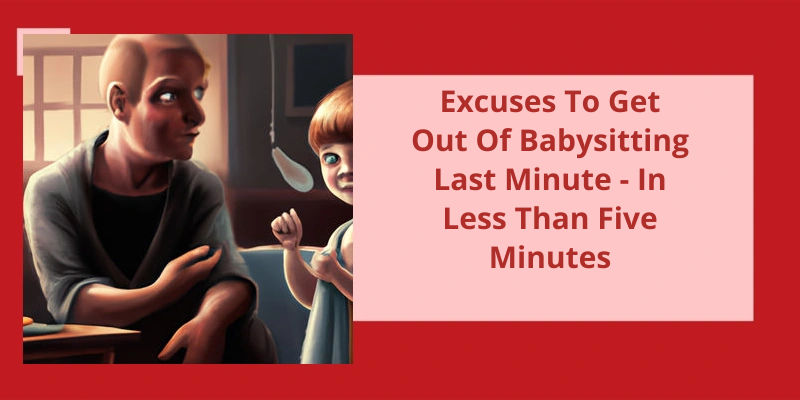Narcissistic personality disorder (NPD) is a mental health condition that’s characterized by an inflated sense of self-importance, a constant need for admiration, and a lack of empathy. Narcissists often seek out relationships and connections with others, known as "supply," in order to feed their ego and bolster their self-esteem. However, these relationships rarely last long, as the narcissist's constant need for attention and validation can become exhausting for their partners. When these relationships inevitably come to an end, it isn’t uncommon for a narcissist to obsess over their former supply, particularly if they feel that their ego has been wounded or that their control over the relationship has been threatened. In many cases, this obsession can lead to stalking, harassment, and other forms of abusive behavior, making it difficult for the former supply to move on and find closure.
Why Does the Narcissist Tell You About the New Supply?
It’s a common behavior among narcissists to flaunt their new partner to their old supply, as they seek to reaffirm their self-worth and bask in the attention that their new supply provides. These individuals view themselves as superior, and by showcasing their new and improved partner, they can reinforce this belief. This behavior also serves as a way to invalidate their old supply, and make them feel insignificant and unworthy in comparison. In essence, the narcissist is telling their old supply, “I’ve upgraded, and you were no longer good enough for me.”
It’s important to understand that this behavior isn’t a reflection of the old supplys worth or character, but rather a manifestation of the narcissists pathological need for attention and validation. By keeping the old supply in the loop about their new partner, the narcissist maintains a sense of control over the dynamics of the relationship. They enjoy knowing that their old supply is still invested in them, and that they’ve the power to make them feel jealous or inferior.
For many narcissists, the pursuit of the perfect partner is an ongoing quest, and they view their new supply as an idealized version of the person they’ve been searching for. By sharing information about their new partner, the narcissist can indulge in fantasies about this ideal love and fuel their grandiose sense of self-importance. In their mind, this new relationship represents a fresh start, full of promise and potential.
Another factor that may contribute to a narcissists desire to share information about their new supply is their need for revenge or retribution. Narcissists can be incredibly vindictive when they feel that they’ve been wronged, and they may use their new partner as a way to hurt or punish their old supply. In some cases, they may even manipulate their new partner into participating in these behaviors, using them as a pawn in their games of emotional warfare.
While this behavior can be hurtful and damaging for those on the receiving end, it’s important to remember that it isn’t a reflection of their worth as a person. Understanding the underlying motivations behind this behavior can help individuals break free from the cycle of abuse and move on to healthier, more fulfilling relationships in the future.
The Impact of the Narcissist Telling You About the New Supply on Your Mental Health and Self-Esteem.
This topic explores the negative effects that a narcissist’s revelation of their new romantic partner can have on an individual’s mental health and self-esteem.
This behavior is rooted in the narcissist’s insatiable need for attention and validation. But once the old supply is out of the picture, do narcissists actually miss them? Let’s explore this question and the psychology behind it.
Does a Narcissist Miss Old Supply?
However, one question that many people who’ve been involved with a narcissist often wonder is whether the narcissist misses their old supply. After all, the narcissist may have spent months or even years investing time and energy in their old supply, so it’s natural to wonder if they still think about them.
The answer to this question isn’t a straightforward one.
This could be because the old supply was particularly attractive, successful, or well-respected, and the narcissist enjoyed basking in their reflected glory. In these cases, the narcissist may find it difficult to replace their old supply and may miss them even after moving on to a new source of supply.
This is because narcissists are notorious for their lack of empathy and their inability to form deep, meaningful relationships. To admit that they miss someone would be to admit that they need someone, which goes against the narcissists carefully constructed self-image.
How Long Does It Typically Take for a Narcissist to Move on From Their Old Supply?
- There’s no specific timeline for narcissists moving on from their old supply.
- It can vary based on individual circumstances such as the length of the relationship and the level of attachment to the old supply.
- In some cases, a narcissist may move on quickly while in others they may try to hoover their old supply back in multiple times.
- It’s important for the old supply to focus on their own healing and moving on rather than waiting for the narcissist to do the same.
Source: Why would a narcissist go back to the old supply?..
However, the question remains: do narcissists love their supply? It’s a complicated answer that requires delving deeper into the psyche of a narcissist and understanding the intricacies of their relationships with their sources of supply.
Do Narcissists Love Their Supply?
However, it’s important to note that despite accepting and actively pursuing supply, narcissists aren’t capable of truly loving their supply. A narcissists love is entirely self-centered and solely based on how their supply can benefit and serve them. They don’t see their supply as individuals with their own thoughts, emotions, and needs. They see them only as a tool to feed their insatiable need for attention, admiration, and validation.
This lack of genuine love and empathy is a defining characteristic of narcissistic personality disorder. They’re unable to form deep and meaningful emotional connections with others. Instead, they view others as mere objects to be used and manipulated for their own gain. This distorted view of love and relationships can be traumatizing and emotionally damaging for their supply.
While narcissists may go through the motions of expressing affection and attention towards their supply, it’s purely superficial and designed to manipulate and control. They may shower their supply with gifts, attention, and flattery, but it’s all a means to an end. Once they’ve exhausted their supply, they’ll discard them without a second thought.
They need constant validation from others to feel good about themselves and to quell their anxiety about being alone. This fear and insecurity are what drive them to seek out new sources of supply when their current supply is no longer fulfilling their needs.
Their relationships are based solely on their own needs and desires, and they view their supply as objects to be used and manipulated. Their constant need for validation and attention is rooted in deep-seated fear and insecurity, and their pursuit of new supply is a never-ending cycle that can be emotionally devastating for those caught in their web.
It’s important to note that once a narcissist depletes their supply, their behavior can become more erratic and damaging than ever before. Their desperation to fill the void can lead to cruel and manipulative tactics that have serious consequences for those around them.
What Do Narcissists Do When They Run Out of Supply?
The aggression is usually in the form of forced contact, stalking, and harassment. The narcissist may become vindictive and go on smear campaigns to damage the reputation of the people they once considered as sources of supply. On the other hand, passive-aggressive abuse may manifest in the form of the silent treatment and ghosting. The narcissist may ignore or disengage from their sources of supply, hoping to cause emotional distress and eventually draw them back in.
Most narcissists will go through extreme lengths to find new supply when they run out. This may include reigniting old relationships, joining social circles, or even moving to new locations where they can start afresh. They may use their charm, wit, and manipulative tactics to lure in new victims, but this new supply is never enough. The narcissists insatiable appetite for attention, admiration, and control will eventually lead them back to their old ways, resulting in an endless cycle of abuse.
It’s worth noting that when a narcissist runs out of supply, they may also experience a period of self-reflection and introspection. However, such instances are usually short-lived, and the narcissist will quickly revert to their habitual behavior. They may seek therapy, but they rarely commit to the process because they think they’re always right and know whats best for them.
The lack of supply can trigger a full-blown narcissistic crisis, where the narcissist experiences a profound sense of emptiness, worthlessness, and despair. This crisis can lead them to seek out more dangerous forms of supply, such as drug and alcohol abuse, or engaging in reckless behaviors. the narcissists inability to navigate their emotions and maintain healthy relationships will only lead to more damage, hurt, and pain.
Their emotional instability, lack of empathy, and grandiose sense of self make them incapable of sustaining healthy relationships. As such, their endless search for supply will be a never-ending cycle of abuse, manipulation, and control. It’s essential to recognize the signs of a narcissist and seek help for both the victims and the narcissist themselves. Only then can we hope to break the cycle of abuse and promote healthy relationships based on mutual respect and empathy.
Conclusion
In conclusion, the issue of whether narcissists obsess over old supply is a complex and nuanced one that requires careful consideration and context. By remaining aware of the potential dangers of such relationships, we can begin to cultivate healthier and more fulfilling connections with ourselves and those around us.






